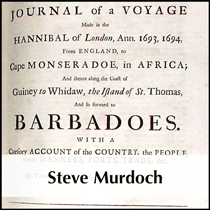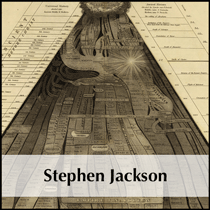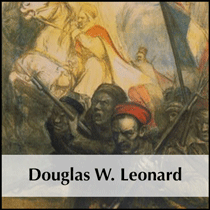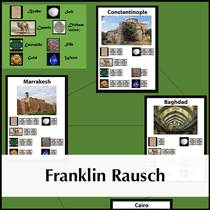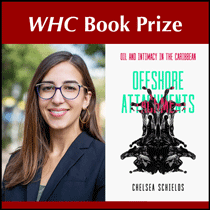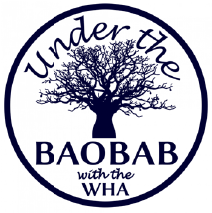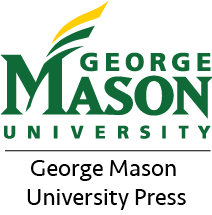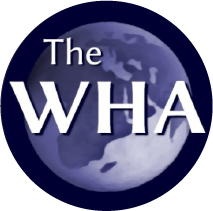Announcing Vol. 21. No. 1
George Mason University Press announces the publication of the Winter 2024 issue (Vol. 21, No. 1) of World History Connected. To celebrate the journal’s twentieth anniversary, this retrospective issue, “Looking Back, Moving Forward: Two Decades of World History Research and Pedagogy,” includes ten previously published articles recommended by members of the journal’s Advisory Board, Editorial Board, and attendees to the “World History Connected: 20 years of Supporting Research And the Scholarship of Teaching” roundtable held at the World History Association Conference in 2023. This selection is only a small sampling of the extraordinary scholarship featured in the journal, which promotes accessible research and teaching scholarship to serve the world history community broadly. The new Editor of the journal, Cynthia Ross, hopes contributors and readers will enjoy reflecting back over these familiar favorites and hidden gems, while looking forward to the next twenty years of World History Connected. We welcome the continued support of our contributors and readers and as always, we look forward to your feedback, suggestions, and ideas for future articles and forums.
Articles
“World History Makeover: The French Revolution”
Deborah Smith Johnston
Originally published in Issue 1.1, November 2003
“So Many Africas, So Little Time: Doing Justice to Africa in the World History Survey”
Jonathan Reynolds
Originally published in Issue 2.1, November 2004
“Teaching Gender in the World History Classroom”
Sharon Cohen
Originally published in Issue 3.1, October 2005
“Contingency, Pattern and the S-curve in Human History”
David Christian
Originally published in Issue 6.3, October 2009
“Manuela Sáenz and the Independence of South America”
Nicola Foote
Originally published in Issue 7.1, February 2010
“War and the Environment”
Richard P. Tucker
Originally published in Issue 8.2, June 2011
“Beyond the Scramble: African Veterans, the Second World War and Decolonization in the World History Classroom”
Sharika Crawford
Originally published in Issue 12.1, February 2015
“Digital Resources for Teaching World History with Cinema and Film”
John Maunu
Originally published in Issue 16.2, June 2019
“Fast Food for Thought: Finding Global History in a Beijing McDonald’s”
Thomas David DuBois
Originally published in Issue 18.2, June 2021
“The Walrus and the Emperor: Materials, Miracles, and Memory in the Early Modern Persian Cosmopolis”
Ali Gibran Siddiqui
Originally published in Issue 20.3, October 2023
Special Essay
World History Connected Turns Twenty
Tom Laichas
Book Reviews
Jim Downs, Maladies of Empire: How Colonialism, Slavery, and War Transformed Medicine.
Ellen A. Ahlness
Jennifer L. Morgan, Reckoning with Slavery: Gender, Kinship, and Capitalism in the Early Black Atlantic.
Paul C. Banda
Philip Dwyer and Mark Micale, Eds., The Darker Angels of Our Nature: Refuting the Pinker Theory of History and Violence.
Guy Lancaster
Julián Casanova, A Short History of the Spanish Civil War and Giles Tremlett, The International Brigades: Fascism, Freedom and the Spanish Civil War.
Robert Shaffer
Stewart Gordon, A History of the World in Seven Themes, Two Volumes.
Reid Wyatt
About World History Connected
World History Connected is a grant-supported open-sourced, double-blind peer reviewed affiliate of the World History Association. It serves as a means of creating community among all those devoted to research and teaching world history. Not every article “connects” or bridges these twin objectives, but published reviews have judged this e-journal successful in achieving its dual goal in supporting and disseminating globally both archivally based research and the scholarship of teaching. Over its 20 years of existence, it has been guided by world historians and educators devoted to providing publication opportunities for senior, rising, and scholars just entering the field, offering the latter assistance in reaching the highest standards for accessible writing, referencing, and formatting, whether the article is, or is not, accepted for publication. Its editorial staff includes past presidents of the World History Association and distinguished Advanced Placement and Master Teachers, none of whom are paid for their service.
Those interested in submitting articles to the journal should email the Editor, Cynthia Ross (cynthia.ross@tamuc.edu) with the subject line, “WHC Submission,” adding their name and short tile of the submission. Prospective authors of articles should refer to the journal’s “Submission Guide and Style Sheet” before submitting their articles for peer review. The Guide can be found on the journal’s website at https://journals.gmu.edu/index.php/whc/submission-guidelines. Like all academic journals, it reserves the right to decline to publish any submission.
World History Connected welcomes expressions of interest from those who might like to serve as Guest-Editors for its Forums. Calls for Papers to contribute to announced Forums, as well as for individual articles, are regularly posted on H-Net, the World History Association’s Newsletter and social media.
Book reviews are welcome via preliminary contact with the journal’s Book Review Editor, Gina Bennett (GBennett@coker.edu).
The journal is published 3 times annually (Winter, Summer and Fall), with additional material shared on social media through its social media editors. Follow us at:


